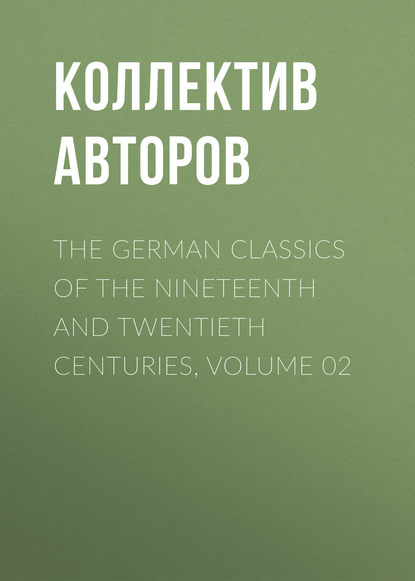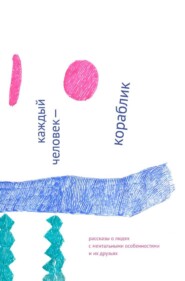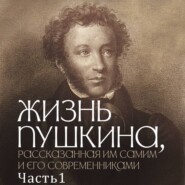По всем вопросам обращайтесь на: info@litportal.ru
(©) 2003-2025.
✖
The German Classics of the Nineteenth and Twentieth Centuries, Volume 02
Настройки чтения
Размер шрифта
Высота строк
Поля
That they ultimately received their present form, printed directly from Winckelmann's manuscript notes, is due to many often unimportant circumstances. A single month later and we should have had works, more correct in content, more precise in form, perhaps something quite different. Just for this reason we so deeply regret his premature death, because he would have constantly rewritten his works and enriched them with the attainments of the (ever) later phases of his life.
Everything that he has left us, therefore, was written as something living for the living, not for those who are dead in the letter. His works, combined with his correspondence, are the story of a life; they are a life itself. Like the life of most people, they resemble rather a preparation for a work than the latter in its accomplishment. They give cause for hopes, for wishes, for premonitions. If one tries to correct them he sees that he must first correct himself; if he wishes to criticize them, he sees that he might himself, upon a higher plane of knowledge, be subjected to the same criticism; for limitation is everywhere our lot.
PHILOSOPHY
With the progress of civilization, not all parts of human labor and activity in which culture is revealed, flourish equally; rather in accordance with the favorable character of persons and conditions, one necessarily surpasses the other, and thus arouses a more general interest. A certain jealous displeasure often arises in consequence, among members of a family so varied in its branches, who often are the less able to endure one another, the more closely they are related.
It is for the most part a baseless complaint, when this or that adept in science and art complains that just his branch is being neglected by contemporaries; for an able master has only to appear in order to concentrate attention upon himself. If Raphael should reappear today, we should bestow upon him a superabundance of honor and riches. An able master arouses excellent pupils and their activities extend their ramifications into the infinite.
From the earliest times philosophers especially have incurred the hatred, not only of their fellow scientists, but of men of the world and bons vivants, perhaps more by the position they assume than by their own fault. For as philosophy in accordance with her nature must make demands upon the universal and the highest, she must regard worldly objects as included in and subordinated to herself.
Nor are these pretentious demands specifically denied; every man rather believes that he has a right to take part in her discoveries, to make use of her maxims, and to appropriate whatever else she may have to offer. But as philosophy, in order to become universal, must make use of her own vocabulary of unfamiliar combinations and difficult explanations, which are in harmony neither with the life nor with the momentary needs of men of the world, she is despised by those who cannot find the handle by which she might easily be grasped.
Yet, if, on the other hand, one wished to accuse the philosophers because they do not know how to translate doctrine into life, and because they make the most mistakes exactly where all their convictions should be converted into action, thereby diminishing their own credit in the eyes of the world—no lack of examples might be found to verify such accusations.
Winckelmann often complains bitterly of the philosophers of his day and their widespread influence; but I think one can escape from every influence by limiting oneself to his own line of work. It is strange that Winckelmann did not attend the University at Leipsic, where, under the direction of Johann Friedrich Christ, he might, without troubling himself about a single philosopher in existence, have made much more comfortable progress in his favorite study.
This is perhaps the proper place for an observation which we should like to make, in view of recent events—that no scholar can afford to reject, oppose, or scorn the great philosophical movement begun by Kant, except the true investigators of antiquity, who by the peculiarity of their study seem to be especially favored above all other men. For since they are occupied with the best that the world has produced and only examine the trivial and the inferior in their relation to the most excellent, their attainments reach such fullness, their judgment such certainty, their taste such consistency, that they appear within their own circle most wonderfully, even astonishingly, cultured. Winckelmann also attained this good fortune, in which indeed he was greatly assisted by the influence of the fine arts and of life itself.
POETRY
Although Winckelmann in reading the ancient authors paid great attention to the poets, an exact examination of his studies and of the course of his life reveals no particular inclination to poetry; on the contrary, an aversion occasionally appears. His preference for the old and accustomed Lutheran church hymns and his desire to possess an uncensored song book of this kind in Rome reveals the typical and sturdy German, but not the friend of poetry.
The works of the poets of past ages appear to have interested him at first as documents of ancient languages and literature, later as witnesses for the fine arts. It is all the more wonderful and gratifying when he himself appears as a poet, as an able, unmistakable one, in his description of statues and in almost all of his later writings. He sees with his eyes, he grasps with his mind, works indescribable, and yet he feels an irresistible impulse to master them by the spoken and the written word. The perfect master-work, the idea in which it had its origin, the emotion that was awakened in him in beholding it, he wishes to impart to the hearer or the reader. Reviewing the array of his aptitudes, he finds himself compelled to seize upon the most powerful and dignified expression at his command. He is compelled to be a poet, whatever he may think, whether he wishes or not.
ATTAINED INSIGHT
As much value as Winckelmann placed upon the world's esteem, as much as he desired a literary reputation, as much as he endeavored to present his work in the best form and to elevate it by a certain dignified style, he was nevertheless in no wise blind to its faults, but rather was the first to observe them, as one would expect from a man of his progressive nature, always seizing upon and working over new materials. The more he had labored upon a subject, dogmatically and didactically, had maintained and established this or that interpretation of a monument, this or that explanation or application of a passage, the more conspicuous did his own mistakes seem to him. As soon as he had convinced himself of them by new data, the more quickly was he inclined to correct them in any way possible.
If the manuscript was at hand, it was rewritten; if it had been sent to the printer, corrections and additions were appended. Of all this penance he made no secret to his friends, for his character was based upon truth, straight-forwardness, frankness, and honesty.
LATER WORKS
A happy thought became clear to him, not suddenly but as the work progressed—we mean his Monumenti Inediti. It is quite evident that he was at first tempted by his desire to make new subjects known, to explain them in a happy manner and to enlarge the study of antiquity to the greatest possible extent; added to this was the interest of testing the method once set forth in his history of art, by means of objects which he laid before the eyes of the reader. For he had finally developed the felicitous resolve, in this preliminary treatise, quietly to correct, purify, compress, and perhaps even partly supplant, his already completed work on the history of art.
Conscious of former mistakes which people who were not inhabitants of Rome could scarcely have reproached him with, he wrote a work in the Italian language, which he intended should be appreciated in Rome itself. Not only did he devote to it the greatest attention, but he also selected friendly connoisseurs with whom he carefully went over the work, most cleverly using their insight and judgment, and thus created a work which will go down as a heritage for all ages. Not only did he write it, but he undertook its publication, achieving, as a poor layman, that which would do honor to a well established publisher, or to academies of large means.
THE POPE
Should so much be said of Rome without remembering the Pope, who had, at least indirectly, conferred many, many benefits upon Winckelmann? Winckelmann's sojourn in Rome fell for the most part under the government of Benedict XIV. Lambertini, a gay and easy-going man, who preferred letting others rule to ruling, himself; and so the different positions which Winckelmann filled may have come to him rather through the favor of his exalted friends than through the appreciation of his services by the Pope.
Nevertheless, we find him on one important occasion in the presence of the Head of the Church; he was honored by being allowed to read several passages of the Monumenti Inediti to the Pope, thus achieving also, along this line, the highest honor which an author could receive.
CHARACTER
In the case of very many men, especially in the case of scholars, their achievements seem the important thing, and in these their character finds little expression. With Winckelmann the reverse was the case. All that he produced is principally important and valuable because his character is always revealed in it. As we have already expressed certain generalities concerning his character under the headings, The Antique, Paganism, Friendship, and Beauty, the more detailed account deserves a place here, near the end of our essay.
Winckelmann was in all respects a character who was honest with himself and with others. His native love of truth constantly developed, the more independent and unhampered he felt, until he finally considered the polite indulgence of errors traditional in life and in literature to be a crime.
Such a nature could comfortably withdraw into itself; vet even here we discover in him the ancient characteristic of always being occupied with himself, but without really observing himself. He thinks only of himself, not about himself; his mind is occupied with what he has before him; he is interested in his whole being, in its entire compass, and he cherishes the belief that his friends are likewise interested therein. We, therefore, find everything mentioned in his letters, from the highest moral to the most common physical need; indeed he directly states that he preferred to be entertained with personal trifles rather than with important affairs. At the same time he remains a complete riddle to himself, and even expresses astonishment over his own being, especially in consideration of what he was and what he had become. But every man may thus be regarded as a charade of many syllables, of which he himself can spell only a few, while others easily decipher the whole word.
Nor do we find in him any pronounced principles. His unerring feeling and cultured mind served him as a guide in morals as well as in aesthetics. His ideal was a kind of natural religion, in which God appears as the ultimate source of the beautiful and hardly as a being having any other relation to man. His conduct was most beautiful in all cases involving duty and gratitude.
His provision for himself was moderate, and not the same at all times. He always labored most diligently to secure a competence for his old age. His means are noble; in his efforts to attain every end he shows himself honest, straightforward, even defiant, and at the same time clever and persevering. He never works after a fixed plan, but always instinctively and passionately. His pleasure in every discovery is intense, for which reason errors are unavoidable, which, however, in his rapid progress are corrected as quickly as he sees them. Here also he always maintains an antique principle; the certainty of the point of departure, the uncertainty of the aim to be reached, as well as the incomplete and imperfect character of the treatment as soon as it becomes extensive.
SOCIETY
Little prepared by his early mode of life, Winckelmann did not at first feel at ease in company, but a feeling of dignity soon took the place of education and custom, and he learned very rapidly to conduct himself in accordance with his surroundings. The gratification felt in association with distinguished, wealthy and celebrated people and the pleasure of being esteemed by them everywhere appears. As regards facility of intercourse, he could not have found himself in a better place than Rome.
He himself observes, that however ceremonious the Roman grandees, especially the clerical, appeared in public, at home they were pleasant and intimate with the members of their household; but he did not observe that this intimacy concealed the oriental relation of lord and servant. All southern nations would find it intolerably tiresome to have to maintain the constant mutual tension in association with their dependents which the northerners are accustomed to.
Travelers have observed that the slaves in Turkey behave toward their masters with more ease than northern courtiers toward their princes, or dependents with us toward their superiors. Yet, examined closely, these marks of consideration have been really introduced for the benefit of the dependents, who by these means always remind their superior what is due them.
The southerner, however, craves for hours in which to take his ease, and this accrues to the advantage of his household. Such scenes are described by Winckelmann with great relish; they lighten whatever dependence he may feel, and nourish his sense of freedom which was averse to every fetter that might restrain him.
STRANGERS
Although Winckelmann was very happy in his association with the natives, he suffered all the more annoyance and tribulation from strangers. It is true that nothing can be more exasperating than the usual stranger in Rome. In every other place the traveler can better look out for himself and find something suitable to his needs; but whoever does not accommodate himself to Rome is an abomination to the man of real Roman sentiment.
The English are reproached because they take their tea-kettles everywhere along with them, even dragging them to the summit of Mt. Ætna. But has not every nation its own tea-kettle, in which its citizens on their travels brew a bundle of dried herbs brought along from home?
Such hurrying and arrogant strangers, never looking about them, and judging everything in accordance with their own narrow limitations, were denounced by Winckelmann more than once; he vows never to show them about, and yet finally allows himself to be persuaded to do it. He jests over his inclination to play the schoolmaster, to teach and to convince, and indeed many advantages accrued to him through the association with persons important by reason of their rank and services. We mention only the Prince of Dessan, the Crown Prince of Mecklenburg-Strelitz and Brunswick, and Baron von Riedesel, a man who showed himself quite worthy of our friend in his attitude toward art and antiquity.
THE WORLD
Winckelmann constantly sought after esteem and consideration; but he wished to achieve them through real merit. He always insists upon thoroughness of subject, of means, and of treatment, and is therefore very hostile toward French superficiality.
He found in Rome opportunities to associate with strangers of all nations, and maintained such connections in a clever, effective manner. He was pleased with, indeed he sought after, honorary degrees of academies and learned societies.
But he achieved greatest prominence by that great document of his merits, over which he silently labored with great diligence—I refer to his History of Ancient Art. It was immediately translated into the French language, and made him known far and wide.
The real value of such a work is perhaps best appreciated immediately after its publication: its efficiency is recognized, the new matter is quickly adopted. The contemporaries are astonished at the sudden assistance they obtained, while a colder posterity nibbles disgustedly at the works of its masters and teachers, and makes demands which would never have occurred to it, if the very men criticised had not accomplished so much.
And so Winckelmann was recognized by the cultured nations of Europe at a time when he was sufficiently established at Rome to be honored with the important position of Director of Antiquities.
RESTLESSNESS
Notwithstanding his recognized and often vaunted happiness, Winckelmann was always tortured by a restlessness which, as its foundations lay deep in his nature, assumed various forms.
During the times of his early poverty and his later dependence upon the bounty of a court and the favor of many a wellwisher, he always limited himself to the smallest needs, that he might not become dependent or at least not more dependent than absolutely necessary. In the meantime he was always strenuously occupied in gaining by his own exertions a livelihood for the present and for the future, for which at length the successful illustrated edition of his Monumenti Inediti offered the fairest hope.
But these uncertain conditions accustomed him to look for his subsistence now here, then there; now to accept a position with small advantage to himself—in the house of a cardinal, in the Vatican or elsewhere; then, when he saw some other prospect, magnanimously to give up his place, while looking about for something else and lending an ear to many a proposition.
Further, one who lives in Rome is constantly exposed to the passion for traveling to all parts of the world. He finds himself in the centre of the ancient world, and the lands most interesting to the investigator of antiquity lie close about him. Magna Græcia, Sicily, Dalmatia, the Peloponnesus, Ionia, and Egypt—all of them are, so to say, offered to the inhabitants of Rome, and awaken an inexpressible longing in one who, like Winckelmann, was born with the desire to see. This is increased by the great number of strangers on their passage through Rome making sensible or useless preparations to travel in these lands, and who on their return never tire of describing distant wonders and exhibiting specimens of them.
And so Winckelmann planned to travel everywhere, partly on his own responsibility, partly in company with such wealthy travelers as would recognize the value of a scholarly and talented comrade.
Another cause of this inner restlessness and discomfort does honor to his heart—the irresistible longing for absent friends. Upon this the ardent desire of a man that otherwise lived so much in the present seems to have been peculiarly concentrated; he sees his friends before him, he converses with them through letters, he longs for their embraces, and wishes to repeat the days formerly lived together.

















